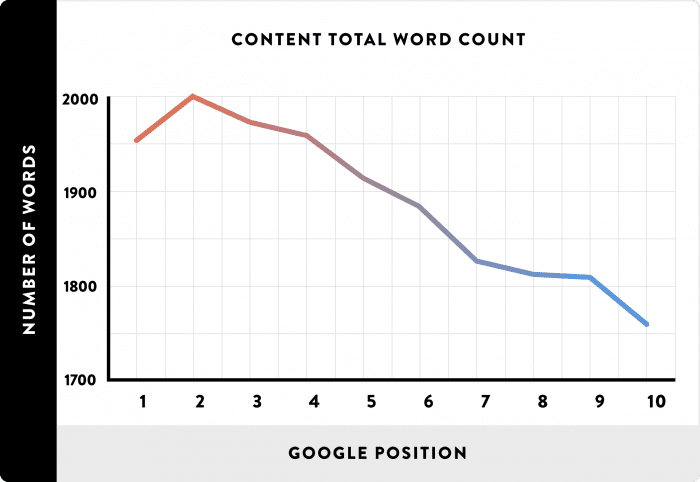Recent analysis has highlighted how more often than not, longer-form content out-performs short-form.
The introduction of "Panda" changed the search landscape quite drastically. No longer was awful, poorly written content dancing around at the top of the SERPs, instead it is wallowing away in the "double digitted" results pages.
The ever-present Brian Dean over at Backlinko recently conducted some analysis of over 1 million Google search results, to answer the question...
Which factors correlate with first page search engine rankings?
It's a great piece, so I'd recommend checking it out. But one of the most pertinent takeaways for us here at Smart Insights, were the findings around content length. It's something as a editors and content creators we wrestle with on a daily basis.

Something that comes as no surprise is that there is a blatant correlation between content length and ranking higher in the SERPs. The fact that the average word count of a Google first page result was 1,890 words, just reinforces this point.
One of the more interesting findings from this research is the notable drop in word count between rankings 1 and 2. Although only a difference of 50 words, it suggests length isn't the only thing Google are looking for.
One theory for long-form content out-performing short-form content is that long content increases your page's topical relevancy, giving Google a greater understanding of the context around your content.
Another theory, suggested by Brian Dean is that typically long-form content generates more social shares, which has long been thought to be a powerful ranking factor.
The main takeaway from this post is to take care with everything you post. If not for your ranking's sake, at very least for your audience.
(P.s I am well aware this post is below the magic 1,890 words; but felt it was a super snippet to help you make positive changes to your content strategy)






